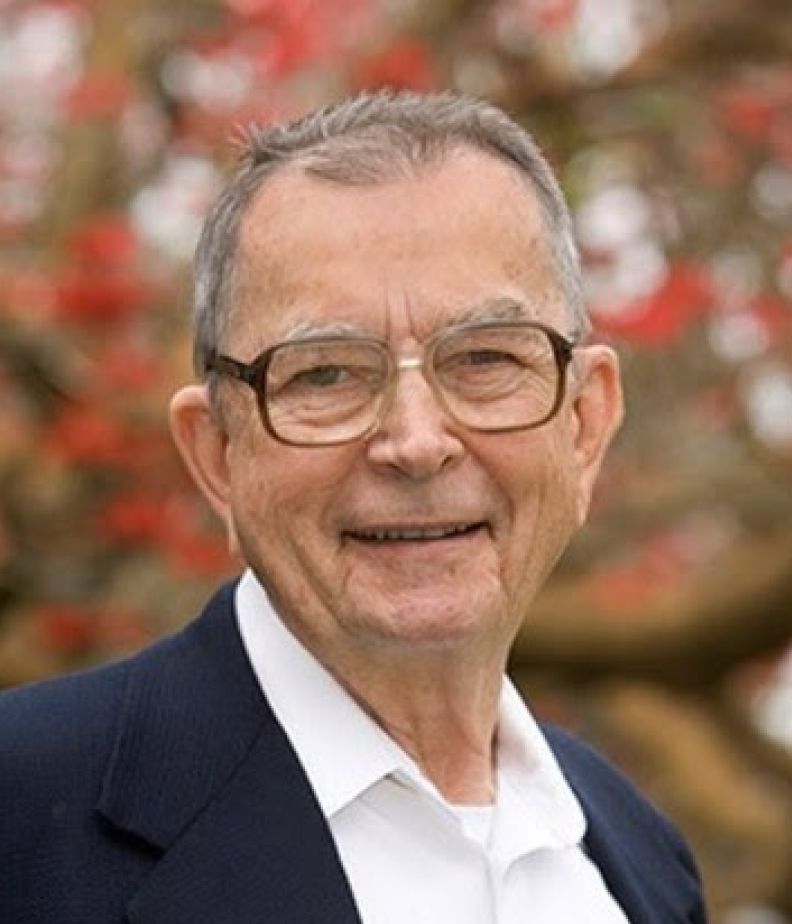
Norman Anderson - In Memoriam

- In Memoriam
In Memoriam
We regret to share that Norman H. Anderson, a professor emeritus in the Department of Psychology, has died. One of the department’s three founding faculty members and one of its greatest benefactors, Anderson was 97 at his passing on Aug. 29, 2022. Over the course of his long life, Anderson made profound contributions both to the field of psychology and to the UC San Diego department that he helped to build. On May 11, members of the university are invited to join together in community at a public reception following the lecture series named in his honor.
Anderson was a prolific and prominent researcher, well known for his work in social and cognitive psychology, with more than 150 publications, including multiple influential books, in the areas of developmental psychology, social judgment and decision making, psychophysical judgment, and methods and data analysis. Information Integration Theory – a theory that he proposed and developed in order to better understand how individuals process information, perceptions and experiences to form judgments and make decisions – is credited with opening up new horizons in psychology. The work was influential in its time and its legacy endures: The eighth International Conference on Information Integration Theory & Functional Measurement is scheduled for June 2023, in Washington, DC.
Just as importantly, he was deeply invested in helping nurture the future of psychology through his teaching and mentorship. Many generations of students were graced with his knowledge, guidance and insight over the course of more than 50 active years with the department. Always interested in helping students, Anderson devoted much of his time and money for their benefit, both during his life and also at his passing.
Anderson’s philanthropic gifts to the Department of Psychology created an endowed lecture series, a graduate student research and travel fund and an endowed fellowship fund. These gifts continue to help the Psychology Department offer valuable academic experiences.
Born July 23, 1925, Anderson was the oldest of five children and grew up during the Great Depression on a dirt farm in north-central Minnesota. Despite these humble beginnings, he was fortunate to receive a scholarship to the University of Chicago where, as he once put it, “I found worlds of which I had never dreamed.” There, he earned a bachelor’s degree in physics in 1946 and a master’s in mathematics in 1949. At age 28, after working for two years as an engineer, he decided to get a Ph.D. in psychology, intending to work on “man-machine systems.” Instead, he found his niche working in experimental psychology at the University of Wisconsin. After two postdoc years at Yale, he was hired by UCLA in 1958, in large part, he said, through the influence of UC President Emeritus Richard Atkinson.
In 1965, Anderson joined George Mandler and Bill McGill at the then-new UC San Diego, where, together, they founded the Department of Psychology. The view of these three founders was that psychology was displayed at its best as an empirical or lab science. Within five years the department had grown to some 18 faculty and was listed as one of the premier experimental psychology departments in the country, a distinction it has maintained to this day.
In addition to his generosity to the Psychology Department at UC San Diego, Anderson gave his time and energy to numerous service positions. He served as consulting editor of the Journal of Experimental Psychology and of the Journal of Abnormal and Social Psychology and was an editorial board member of Perception & Psychophysics, the Journal of Mathematical Psychology, and Behavior Research Methods and Instrumentation. He also served as a member of both the psychobiology panel of the National Science Foundation, and on its social psychology panel.
Among his awards, including campus recognition for excellence in teaching, is the AAAS Prize for Behavioral Science Research.
A very private and rather quiet person, Anderson was nonetheless well known for his warmth and kindness. He also loved nature and loved to hike, sharing photos of his regional adventures with members of the department long after he retired. Fittingly, in 2011, Anderson was celebrated with the dedication of a 40-year-old Torrey Pine tree in the courtyard east of the McGill Psychology Building. This tree is now decorated with a plaque to honor his enduring support.